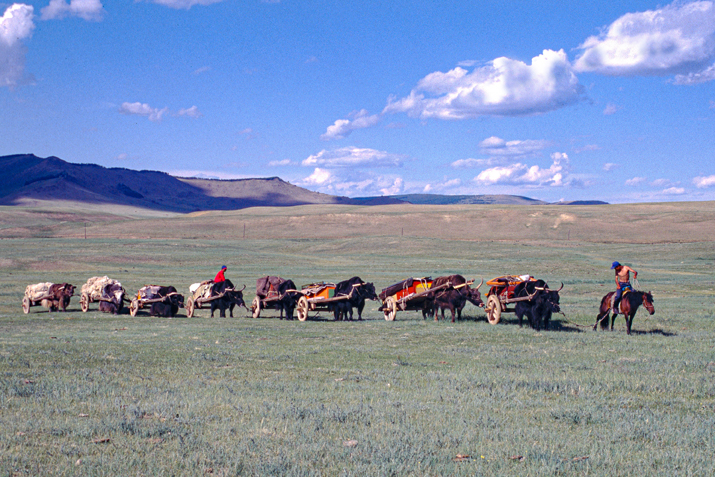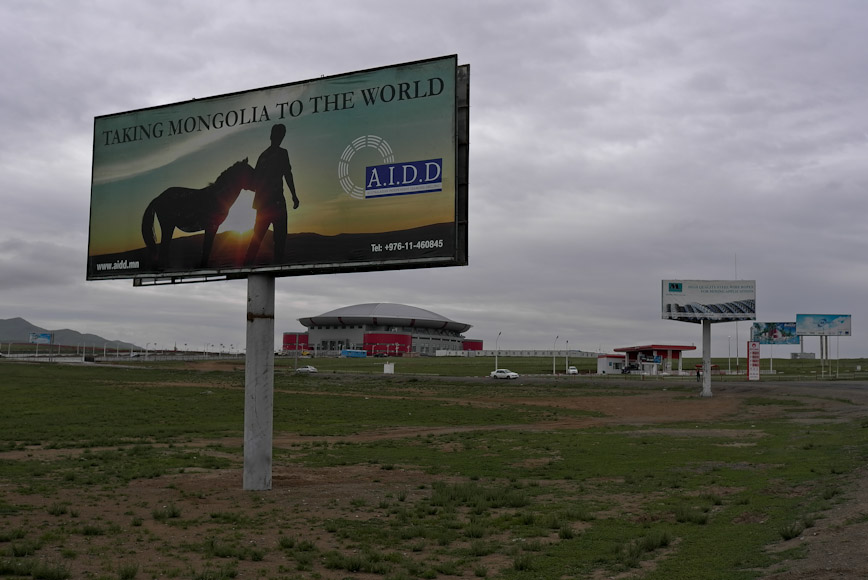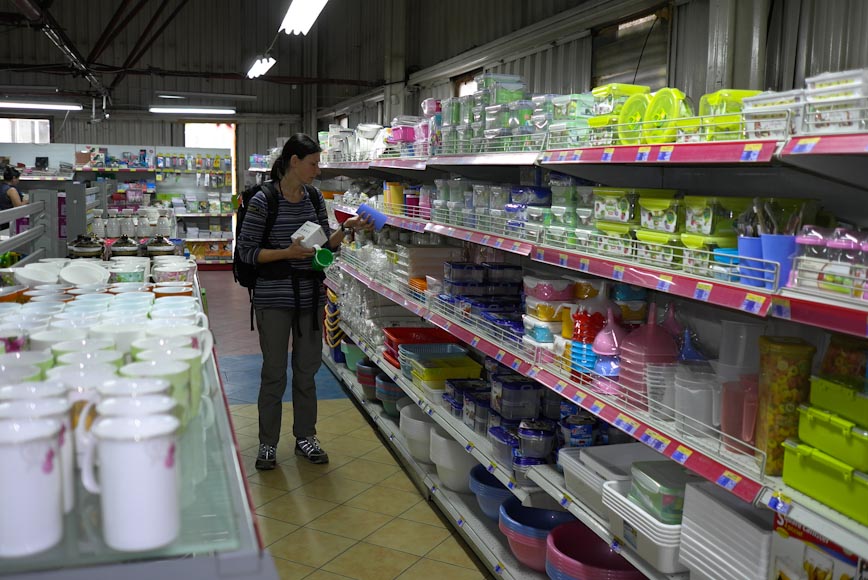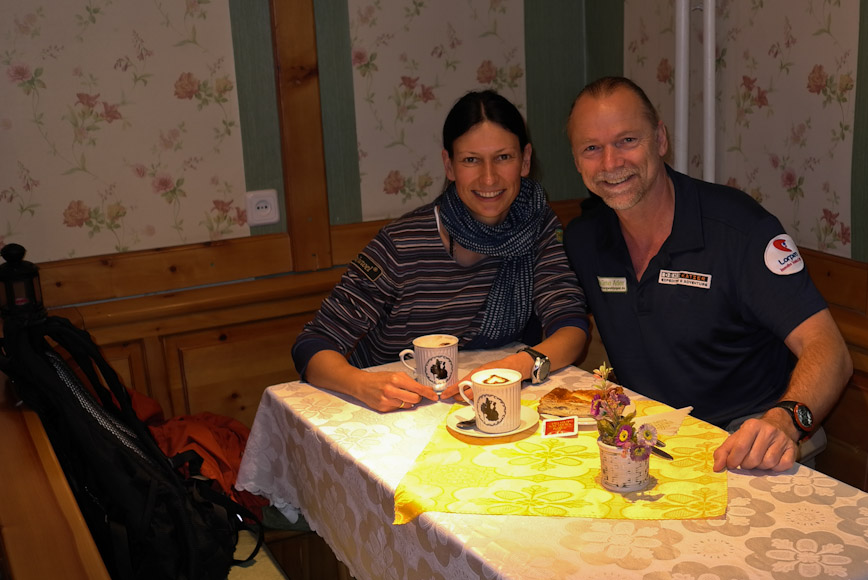
Meet our future companion Ulzii
N 47°55'513'' E 106°55'559''
Day: 3
Sunrise:
05:21 h
Sunset:
8:35 pm
Temperature – Day (maximum):
29 °C
Temperature – day (minimum):
23 °C
Temperature – Night:
19 °C
Latitude:
47°55’513”
Longitude:
106°55’559”
Maximum height:
1315 m above sea level




We sleep like the unconscious. At 10:00 a.m. (4:00 a.m. German time) the phone rings. A Mongolian speaks broken English. It turns out that he is the brother of Saraa’s husband. He would like to accompany us on the expedition. Saraa arranged the contact. She said that it is very dangerous to travel without a companion. “In recent years, horse thefts have become rampant. A French couple, who are my friends, were on an excursion with horses last year. After just seven days, all their horses were stolen. The police did nothing. You have to be very careful,” Saraa warned in an email a few weeks ago. “We meat at the Dschingis Khan Place”, /We meet at the Dschingis Khan Place) I say to the man who has registered with the name Ulzii.
Despite being very tired, we jump out of bed, get dressed and leave the apartment without breakfast. When we arrive at the large square, we don’t find Ulzii. We make several phone calls but he can’t find us. “Maybe the place is called something else?” I wonder. I call Ganbold to ask him. “Sükhbaatar is the name of the square,” explains Ganbold. It doesn’t take long before a young Mongolian comes running towards us. “I’m Ulzii,” he introduces himself and shakes our hands with a smile. We sit down in a Mongolian fast food restaurant and try to have a good time. It turns out that Ulzii is a teacher and currently has no work. “When was the last time you sat on a horse?” I want to know. “Oh, I used to ride every day when I was a little boy”. “And can you ride a horse?” he asks with interest. “There’s no question of skill. In 1996, we rode 1,600 km through Mongolia. Since then, we’ve had more experience with elephants and especially camels,” we explain with a laugh.
The visa marathon continues
Then the cell phone rings again. It is an employee of Saraa who has been traveling by bus for two days to bring us the necessary papers that we still need for our work visa. We go with Ulzii to the agreed meeting point not far from Sükhbaatar Square. “Hello, my name is Tagi”, (Hello, my name is Tagi) he introduces himself in quite good English. “Do you have the necessary documents?” asks Tanja. “I did,” he says, pointing to a yellow envelope he has tucked under his arm. “We agree to postpone the conversation with our possible future companion until tomorrow. “Can you come to our apartment?” I ask Ulzii. “I’ll find it,” he says and takes his leave.
“Let’s take the bus to the immigration office. It’s cheaper,” Tagi suggests. We walk through the city for a few minutes and get on a bus. 20 minutes later we reach the immigration office. Many people stand outside the door and wait. “Let’s go inside. Who knows what these people are waiting for,” says Tanja. “It was a good decision,” I agree with her because we can go straight to one of the many counters in the building and ask an official where we have to go now. We meet some foreigners who are here to extend their visas. “My God! I don’t understand anything. What do they want to know? It’s unbelievable,” curses an Italian impatiently. Tagi is now also sent from counter to counter. We have to fill in forms with the same questions that we have already answered several times in connection with the visa application in Germany. “Maybe it’s an oversight. We’ve already filled out all the paperwork and answered the questions. We should just get our stamp here and nothing more. I’ll call Saraa and ask her. Better safe than sorry,” I say. “That’s completely normal Denis. No, it’s not free. Please answer everything you want to know and submit the forms there. Don’t worry, it’ll be fine,” she explains and reassures us at the same time.
After an hour, the Italian and an Australian couple walk past us smiling. “Have you got your visa extension?” I ask. “Yes, finally. We can stay up to four weeks longer. It’s a mad rush by the authorities to get that little extension,” they reply. “If they only knew that we’ve been working on our visa for 1 ½ years,” I whisper. After another hour and many phone calls with Saraa, we finally get another stamp in our passports. “Now you can stay for 21 days,” says Tagi. “21 days?! We need 365 days,” answers Tanja. “Well, the officer told me that we don’t have all the papers together yet. We still need a few documents from Saraa. It’s about a mutual signature from the provincial government in Khövsgöl, where Saraa lives, and the government in Ulan Bator. Once the papers have been signed by Khövsgöl, Saraa sends them to Ulan Bator. We then have to take these documents to another authority in the capital. The paper will be countersigned there. Then you get a work permit, but only if the documents from Khövsgöl are there. It’s a kind of identity card. We have to come back here with this ID and if everything goes well, you’ll get your work visa,” explains 25-year-old Tagi.
Although we have every reason to be upset about this process, we remain calm. We also don’t want to be annoyed by the bureaucracy in Mongolia. We have heard that it has become just as difficult for Mongolians to enter Europe. Entry regulations have been extremely tightened in our home country. According to many people we met in the eastern countries, the stricter visa regulations are a backlash by the respective governments against the Europeans. According to the motto, if you don’t let us, we don’t want to make it easy for you either.
Entry regulations are becoming more difficult all over the world. Many countries are trying to protect themselves from illegal immigration. This is turning our planet, our Mother Earth, more and more into a big prison for us humans. The freedom to travel wherever you want is limited by various conflicts. Unfortunately, it has become almost impossible to stay as long as you want in the countries you are allowed to travel to. In 1982, when I went on my first long-distance trip, it was much easier to stay longer in a country, especially as there were often opportunities to extend your visa. A hundred years ago, on the other hand, there were hardly any such visa regulations and restrictions and the freedom that is spoken of everywhere today was decidedly greater. Unfortunately, you only realize this when you are not a normal tourist. Tourists are allowed to go almost anywhere and spend their money. But only for a very limited time. After four weeks, sometimes even after 3 months, the tourist status is over.
It’s a shame that we have to expend so much energy to realize our expedition idea. We come to this wonderful country as friends, as people who help other people, as bridge-builders, cultural mediators and, above all, as ambassadors of Mother Earth. But in a bureaucracy, and it doesn’t matter in which country such a bureaucracy has eaten its way into the system, such attributes are irrelevant. Well, what the heck. Travel means change, means movement, preferably movement without friction, because we humans only create friction for ourselves. It often originates in our heads. We are annoyed about something because we imagined it to be different. And that is precisely the point. Why should Tanja and I be annoyed about the visa process? There is nothing we can do about it anyway. Tanja always says you can’t control the snow in the mountains. And that’s exactly how it is. Any anger that comes up only takes away our quality of life and life is simply too short for that. We accept the situation as it is. We remain calm and are sure that everything that happens is just as it should be. But now I’m just starting to philosophize. I think it’s too early for that at this point. When we are sitting in our yurt and winter is raging outside, I still have enough time to dwell on my thoughts and turn them into words.
In good spirits, we leave the authorities behind us and drive back into the city. We make an appointment with Tagi for tomorrow and go to Sacher’s café. Here you can get the best cake in town. Jessy gave us a voucher before we left. “Before you start your expedition, eat some really good cake, drink a delicious cappuccino and think of us,” she said. That’s exactly what we’re doing now.
We look forward to your comments!

